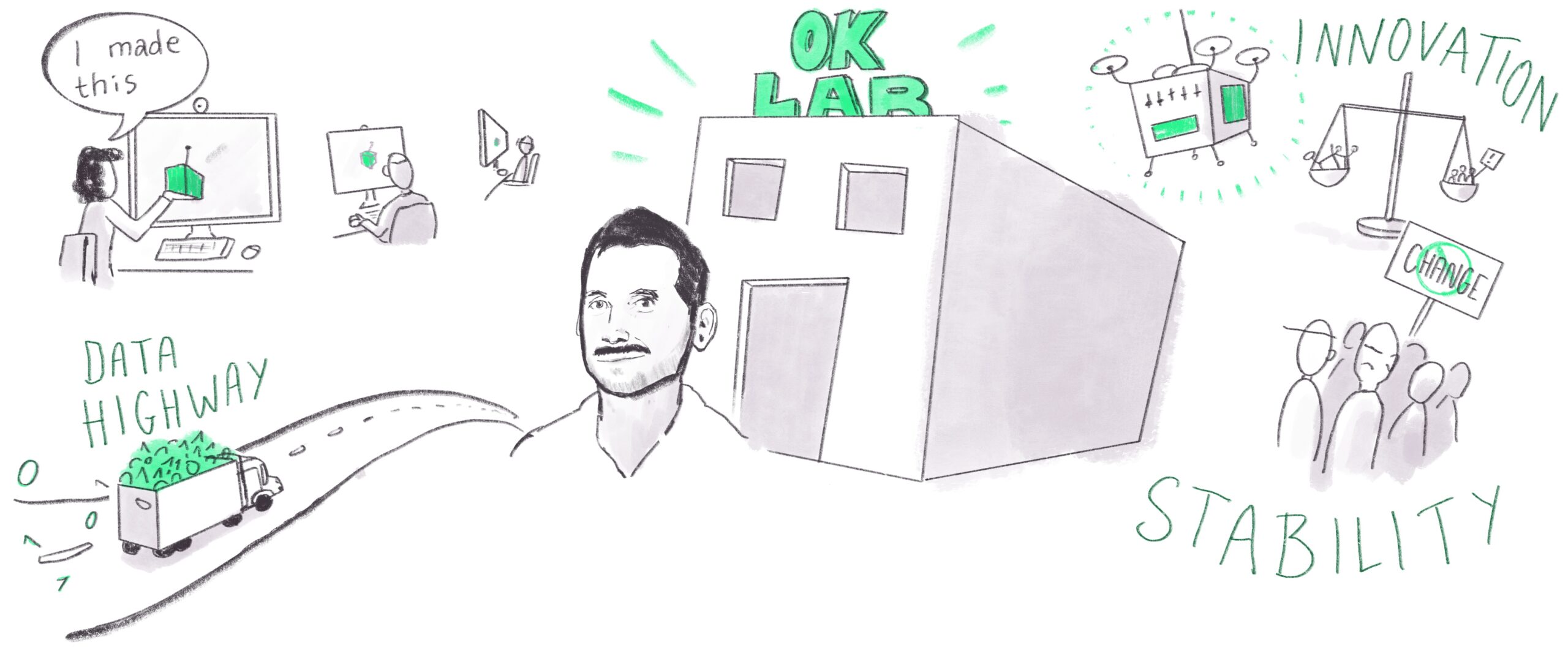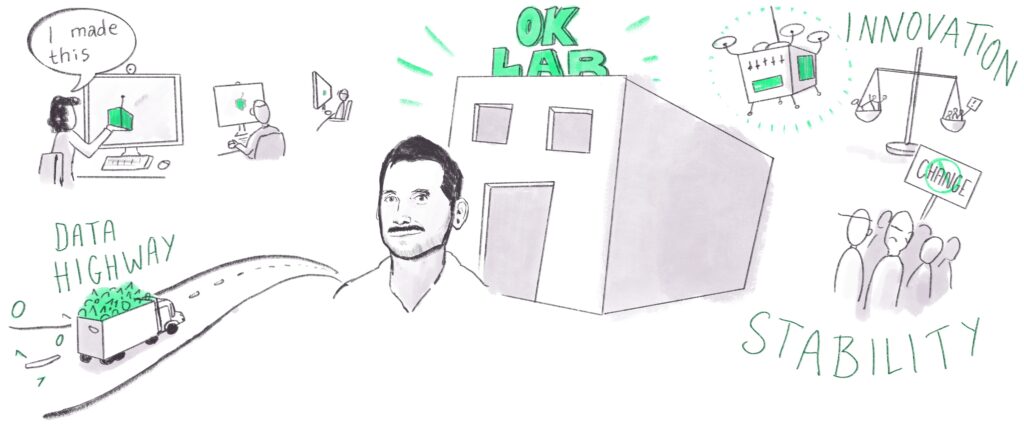
The Public Infrastructure of Digitalization
Staatliche Infrastruktur der Digitalisierung
Podcast in German: Damian Paderta, June 23 2020
Cities should be in control of their infrastructure for digital transformation – but data highways are only part of this. Physical spaces and local communities are required to ensure technology serves the greater good.
Städte sollten die Kontrolle über ihre Infrastruktur für digitale Transformation haben – doch die Datenautobahn ist nur ein Teil davon. Physische Orte und lokale Communities sind notwendig, um sicherzustellen, dass Technologie dem Gemeinwohl dient.

Municipalities are starting to recognize the benefits of citizen participation in the development of digital platforms, just as much as in the development of urban space. Small-scale, bottom-up solutions, however hotchpotch they may be, can be strong enough to carry urban society through times of crisis. Forced apart physically, society has learned to deal with technological possibilities, even experiencing improved efficiency to some degree. But there are aspects of community that cannot be replicated in virtual space. Volunteers in particular feel the lack of positive personal feedback and the satisfaction of fellowship as a source of motivation.
Still, collaborative efforts between civil society and state actors such as the WirvsVirus hackathon have brought forth small projects of high relevance. One team developed a platform to collect opening hours of local businesses; data that is usually not openly available to local governments, yet is crucial for centralized management in times like these. However, Paderta notes, the most successful projects are not started by groups of random strangers, but by teams that knew each other previously. Building mutual trust seems to be much easier in real life. No good projects happen without someone to drive them forward, either. Machines by themselves have no desire, but need a human agent to give them direction.
Ten or twenty years ago, technology constituted the bottleneck, since we were not able to realize everything with the given costs, skills, et cetera. Today, we can do much more, with significantly less know-how of technical context. We just have to want it, to stay on it, and we will manage to do things that […] provide actual value for the real world.
Damian Paderta 06/2020
Paderta is not a proponent of innovation at all costs. He believes that everyone has creative capabilities, but the narrative sometimes focuses too much on experimentation. A balance is needed between openness and stabilizing factors. To take effect, things that appear innovative today must become dull mainstream at some point.
We don’t all build our own streets. Why don’t we think in the same dimensions for our data highways?
Damian Paderta 06/2020
Data, software, but also common spaces should be in the hands of the state. Damian Paderta calls for a new type of urban space to represent virtual worlds, as a part of the public infrastructure for digitalisation. Some libraries have understood this need quite well, but it could also be a task for foundations and universities to provide such spaces.
What does all this mean for young people who are at the beginning of their education and career? Damian Paderta sees two worlds. In some fields, a strictly predefined education is still helpful. But students should be taught that this formal path is not the only one. It is possible to forge new paths and teach oneself new skills. The city in all its complexity appears as a field predestined for these new paths that require dealing with uncertainty and interdisciplinarity.
Damian Paderta describes himself as a researcher, coder, designer, artist, activist and urbanist. He is founder and executive of Offene Kommunen.NRW and Lab Lead at the Open Knowledge Lab in Bonn.